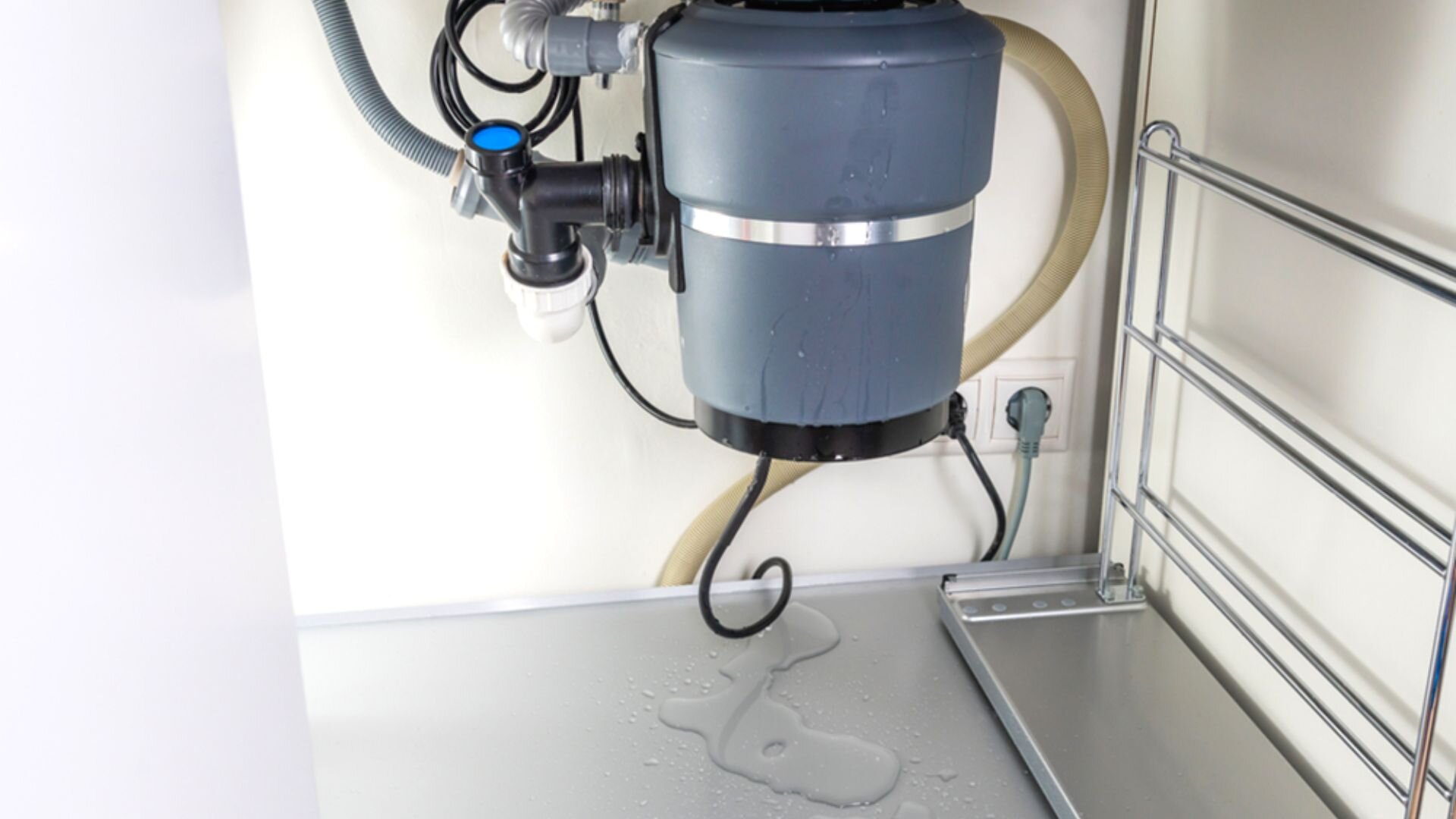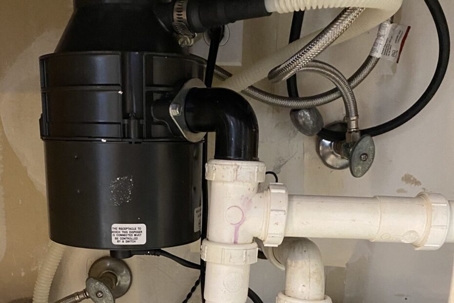Our Guide to Resolving a Leak in Your Garbage Disposal
Our Guide to Resolving a Leak in Your Garbage Disposal
Blog Article
What are your thoughts concerning The Handy Guide To Fixing Your Garbage Disposal Leaking?

Waste disposal unit are crucial kitchen area home appliances that help in taking care of food waste successfully. Nevertheless, a dripping garbage disposal can be an irritating and unpleasant issue to handle. Thankfully, numerous leakages can be fixed quickly with a couple of easy steps. In this short article, we will talk about exactly how to repair a dripping garbage disposal efficiently.
Intro
Garbage disposals are mounted under kitchen sinks and are created to shred food waste right into smaller sized items, enabling it to go through the plumbing system quickly. While these tools are usually reputable, leakages can happen gradually as a result of damage, loosened links, or damage to the system.
Step-by-Step Guide to Fixing a Leaking Garbage Disposal
Turn Off the Power
Prior to trying any repairs, make certain that the power to the garbage disposal unit is switched off to avoid the danger of electric shock.
Find the Leak
Determine the precise area of the leak and figure out the reason
Tighten up Links
Use a wrench to tighten up any kind of loose links between the disposal system and the pipes system.
Change Seals or Gaskets
If the leak results from worn seals or gaskets, eliminate the old parts and change them with brand-new ones.
Patching Cracks or Holes
For fractures or openings in the disposal system, usage epoxy or an ideal patching material to seal the broken location.
Recognizing the Resource of the Leak
Prior to trying to take care of a leaking waste disposal unit, it is vital to determine the source of the leakage. This can normally be done with aesthetic assessment or by conducting basic examinations.
Visual Evaluation
Inspect the garbage disposal unit very carefully for any kind of signs of water leakage. Pay very close attention to locations around seals, gaskets, and link factors.
Examining for Leakages
One means to examine for leakages is by running water through the disposal device and checking for any type of visible indicators of leak.
Common Reasons For Leakages in Rubbish Disposals
Worn Seals and Gaskets
Seals and gaskets play an important function in stopping water from leaking out of the garbage disposal. With time, these parts can degrade, causing leaks around the disposal device.
Loose Links
The connections between the garbage disposal and the pipes system can end up being loose with time, triggering water to leakage out throughout operation.
Splits or Openings in the Disposal Unit
Physical damage to the waste disposal unit, such as cracks or holes in the real estate, can additionally result in leaks.
Devices and Products Needed for Fixing a Leaking Waste Disposal Unit
Prior to starting the repair process, gather the needed devices and products, consisting of a screwdriver, flexible wrench, plumber's putty, replacement seals or gaskets, and epoxy or patching material for fixing splits or openings.
Examining the Waste Disposal Unit After Repair Service
When the repair service is total, evaluate the garbage disposal by running water via it to make certain that the leak has been resolved.
Preventive Upkeep Tips to Prevent Future Leaks
To avoid future leaks, it is essential to do regular maintenance on your garbage disposal. This includes keeping it tidy, preventing placing non-food things or tough things down the disposal, and periodically checking for leakages or other problems.
Final thought
Finally, fixing a dripping waste disposal unit is a fairly uncomplicated process that can be finished with basic tools and products. By complying with the actions described in this post and exercising preventive maintenance, you can keep your waste disposal unit in good working problem and stay clear of pricey repair work in the future.
HERE’S HOW TO FIX YOUR GARBAGE DISPOSAL
WHAT TO DO IF SOMETHING IS STUCK IN YOUR GARBAGE DISPOSAL
If the impeller won’t turn, there’s probably something stuck in the disposal. It could be a steak bone or peach pit, although plumbers report pulling all sorts of inappropriate objects out of disposals, such as bottle caps or aluminum foil. Make sure power to the disposal is off, and look inside to see if you can see the source of the jam.
Never stick your fingers in a disposal. Pull out anything you see with tongs or pliers.
If the disposal still won’t work, it may be time to call a plumber or consider buying a new disposal. GEM Plumbing & Heating is here for all of your garbage disposal needs.
WHAT TO DO IF YOUR GARBAGE DISPOSAL DRAIN IS CLOGGED
Take everything out from underneath your sink and put a bucket or other container under your disposal to catch any water that drains out. Disconnect your disposal from the power supply. If it’s plugged into a wall outlet, unplug it. If it’s hardwired into an electrical box, go to the electrical panel and turn off the breaker for the disposal. Pour ¼ cup of baking soda into the drain, followed by ½ cup of white vinegar. Give the solution a few minutes to fizz and do its work. Look into the disposal with a flashlight to see if you can see an object that might be causing the clog. If you see it, remove it using tongs or pliers. MORE TIPS ON DEALING WITH A CLOGGED GARBAGE DISPOSAL
Never use drain cleaner in a garbage disposal. It can damage the plastic parts inside the disposal. You can also be splashed with the caustic liquid while working to clear the clog. Beware! Never stick your fingers into a garbage disposal. Trust us — not a good idea. In many instances, your dishwasher drains through your garbage disposal. This allows the disposal to grind any large food particles that may be drained out of your dishwasher. There are some jurisdictions, however, where the plumbing code prohibits such a connection. WHAT TO DO WHEN YOUR DISHWASHER DRAINS THROUGH THE DISPOSAL
Run some water in the sink so your plunger has at least a ½-inch of water to create a seal and plunge vigorously up and down several times. You may need to repeat this several times. Run hot water down the drain to clear any residue that remains.

As a serious reader on Why Is , I was thinking sharing that excerpt was a good idea. If you please take the opportunity to share this write-up if you enjoyed reading it. Thank-you for taking the time to read it.
Go Company Report this page